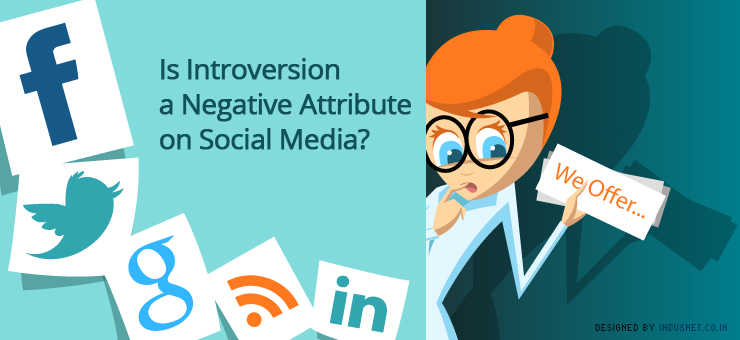
People throw around words like introversion, extraversion, neurotic and psychotic all the time. They may not understand the psychological theories behind these words but they continue to use them. However, introversion and extraversion can be noticed not just offline but online as well. People who are shy, reserved and quiet may seem so online and those who are extraverted may appear so again. Nevertheless, this assumption is being increasingly considered judgmental.
Is social media for introverts?
Social media sites today encourage unabashed self promotion, something that an introvert does not really enjoy doing in ‘real life’. However, a increasing number of introverts appear to be extraverted online. They may communicate, social network, engage and socialize online whereas their shy and reserved nature take effect when they live lives offline. Internet provides a mask and a sense of comfort zone. People feel they will not be judged online because it provides a degree of privacy and anonymity that is not possible in the real world. Consequently, people who are usually shy or reserved tend to be less guarded when interacting with people online.
Hiring introverts for social media jobs
Many people often wonder if it is a good idea to hire a social media manager who is introverted or if introversion should be seen as a negative attribute if one has to deal with social media. Interestingly, introversion or extraversion is not seen as either positive or negative by psychologists. Neither is better than the other and these dimensions of personality only reflect the way a person deals with his or her environment. Here are two scenarios where an introvert fared better in social media communication:
Charlene has always been a reserved young lady. Despite getting good grades in the University, she never managed to get an excellent job because her prospective employers usually concluded that ‘she was too shy’. When she did land up with a social media job, she proved to be excellent. She not only networked well with complete strangers, but she was also found to be great at initiating one-to-one communication with prospective clients. At office though, she continued to be shy.
Cindy, a gregarious and extraverted person never had problems communicate with people. However, when she landed up with a social media job, her employer felt that she just wasn’t the right one. She not only found it difficult to engage her followers on Twitter but found it taxing to ‘lurk around’ social media profiles to initiate client communication.
The psychology behind introversion and extraversion
Psychologists also believe that extraverted people need a lot more stimuli to be stimulated, which is why they tend to be more outgoing, thrill seeking and boisterous. Introverts are similarly believed to have a very active inner mind that is over stimulated, and they thus seek to minimize their excitability. While this may be true to an extent, we must remember that neither is a negative attribute and there are successful introverts just like there are successful extraverts. When it comes to using social media, introversion may actually prove to be a positive quality.
People tend to feel more comfortable in the privacy and anonymity of the Internet and may thus be more social on social media even when they are introverts in real life. Making hiring decisions based on someone’s introversion or extraversion may be a good idea in other professions. However, when it comes to social media, this central dimension of human personality does not matter at all. Instead, what an employer needs to watch out for is impatience. A person who is impatient may not fare well at a social media job.
Social media requires a tremendous amount of patience and ability to wait, and wait again. Social media marketing is hugely dependent upon an individual’s ability to persist, wait and be patient. Prospects may never respond and may refuse to follow you back and may not communicate politely even when they do. Someone who is impatient will not be able to persist and lurk around like Charlene did. Instead, they may become impatient like Cindy and lose interest in the process, thus affecting the company in the long run.